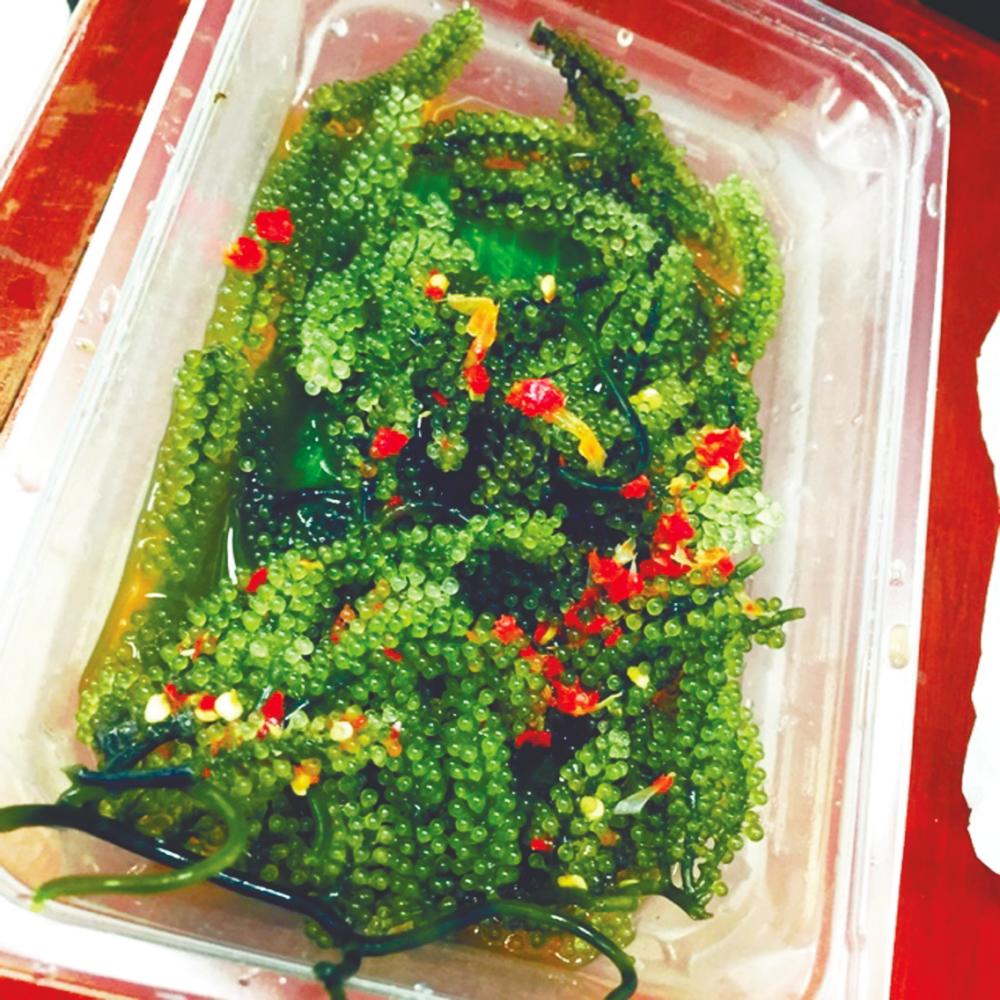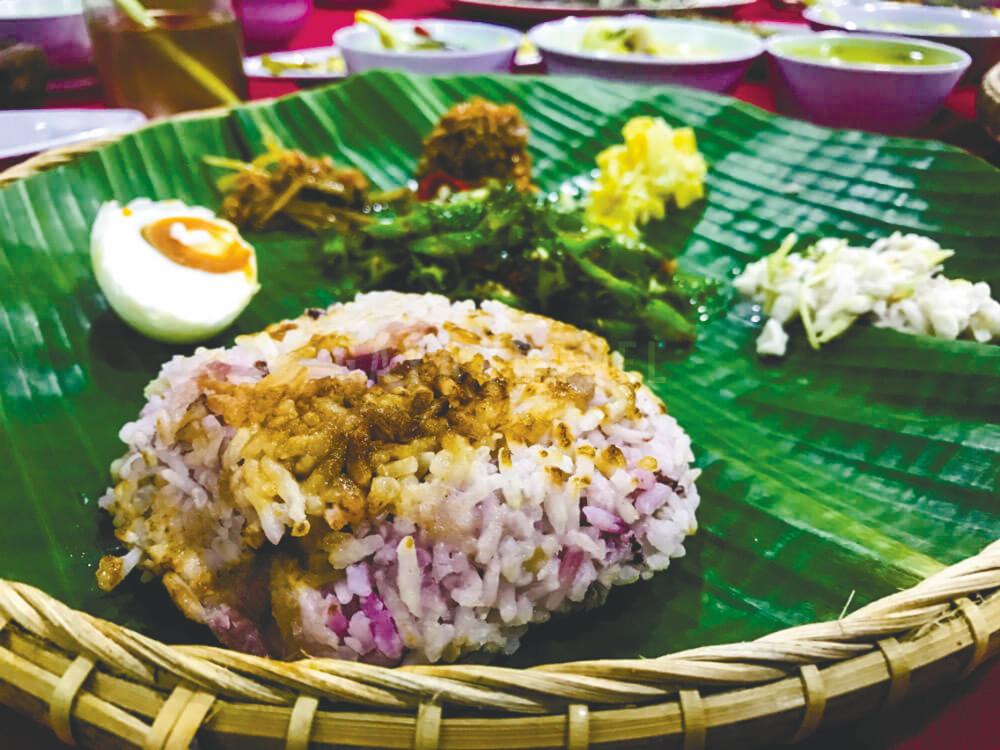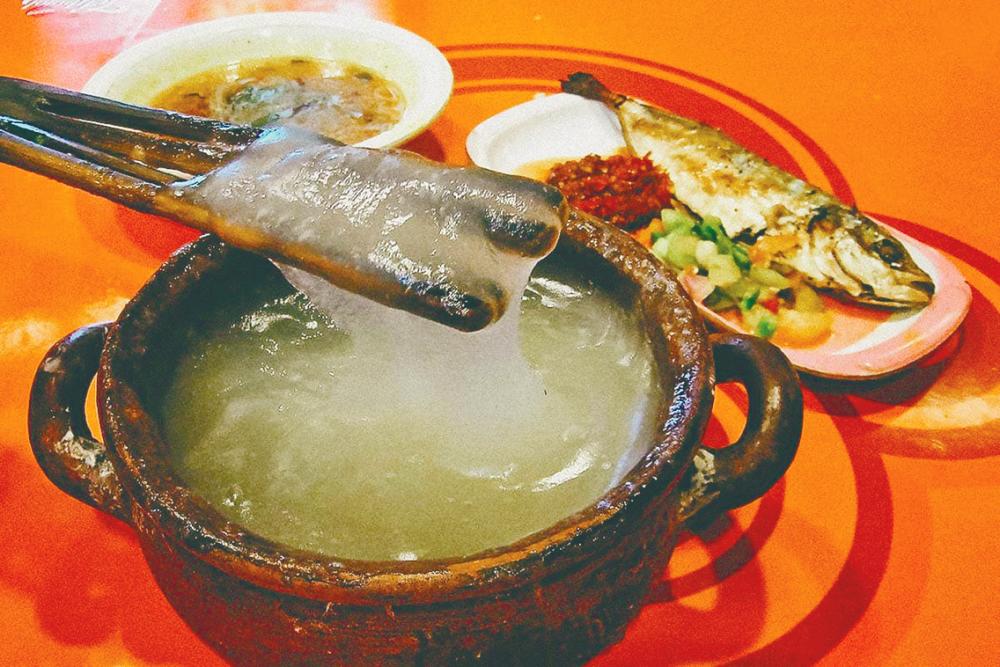THE three largest indigenous groups in Sabah are the Kadazan-Dusun, Bajau and Murut. Despite the passage of time, the indigenous tribespeople have managed to keep their respective food traditions, so if you ever find yourself in Sabah, why not tantalise your taste buds with something different – Sabah indigenous food.
Ambuyat
The dish is a glutinous starchy rice replacement, similar to tapioca starch. It is made from sago powder and water. Usually, the translucent dish is often eaten with sauces or other flavourful dishes like Pinasakan or Bambangan.
Bambangan
A type of jungle mango that can be found in Borneo, the Bambangan flesh is sweet and sour with a pungent scent. Usually, it is pickled with salt and eaten as an appetiser called Nonsom Bambangan, which means “marinated Bambangan” in the Kadazan language.
Bosou
A traditional preserved dish made from fermenting small freshwater fish, such as Ikan Pelian, rather than saltwater fish. After salting and cleaning the fish, rice and a local herb known as Pangi are added to the mix. The mixture is then fermented in an airtight jar for around a fortnight and eaten with rice.
Butod
This worm that is typically found in the sago palm tree is a popular delicacy among the indigenous people of Sabah. It can be eaten raw or fried to get a crispy crust. It’s not for the faint of heart, but if you’re brave enough to try it raw, you’ll be surprised by a burst of creamy protein fluid that tastes somewhat like chicken.
Hinava
Spicy raw fish salad preserved with lime juice made with diced red onion, young ginger, red chilli, bitter gourd and grated Bambangan seeds. Usually made with Tenggiri fish, the raw salad generally has a very short shelf life and has to be eaten within a few hours, or a day or two if refrigerated.
Latok
A type of seaweed with bulbous fish egg-looking appearance all over and a delicacy of the seafaring Bajau. It bursts with flavours of the sea and is often paired with chilli and lime when eaten with grilled fish.

Linopot
A staple in Kadazan-Dusun wedding ceremonies, it is wild rice or mashed yam wrapped in Tarap (a local Bornean fruit) leaves. Traditionally, the fragrant rice is mixed with boiled yam so it takes on a purplish or brown hue.

Losun
The wild spring onions of Borneo take on a less pungent taste compared to normal spring onions. Found in the interior jungles of Borneo, it is usually fried with Bunga Kantan or torched ginger buds, garlic chives, white chillies, garlic, and white pepper, and sometimes anchovies, and usually paired with Linopot and Hinava.
Pinasakan
A slightly tangy and savoury preserved fish dish that is made from braised Basung fish (the big-eye scad) with Takob Akob, a tangy wild fruit, which is similar to tamarind. The sauces include tamarind pieces, fresh turmeric, salt and sometimes, Bambangan.
Sinalau Bakas
Translated as smoked wild boar, it is one of Sabah’s most popular native dishes. It is usually found growing by the side of the winding roads on the way to Kundasang, and eaten with zesty lime and spicy soy sauce. A tip is to order three-layer meat, to enjoy the perfect fatty and meaty smokiness.
Tapai
There are many types of traditional Sabah rice wine. It is usually made with fermented brown rice and produces less water than Lihing, which is made from pulut (glutinous rice). In Murut traditions, Tapai is sipped through a tube straw and shared by all the guests as they take turns drinking it straight from the wine jar. Water is usually added to dilute the Tapai and it is topped up until the wine becomes tasteless before they open up a new jar during celebrations.
Tuhau
A pungent condiment made from the stems of wild ginger that grows in the jungles of Sabah. They are sold either raw or pickled, and are popular among the Kadazan-Dusun community. Due to its strong smell, you’ll either love it or hate it, but it’s definitely worth a try.
The next time you’re in Sabah, expand the adventurous foodie’s palate inside of you. Besides trying the famed Sang Nyuk mee (Sabah pork noodles), try some of the indigenous food as well!










